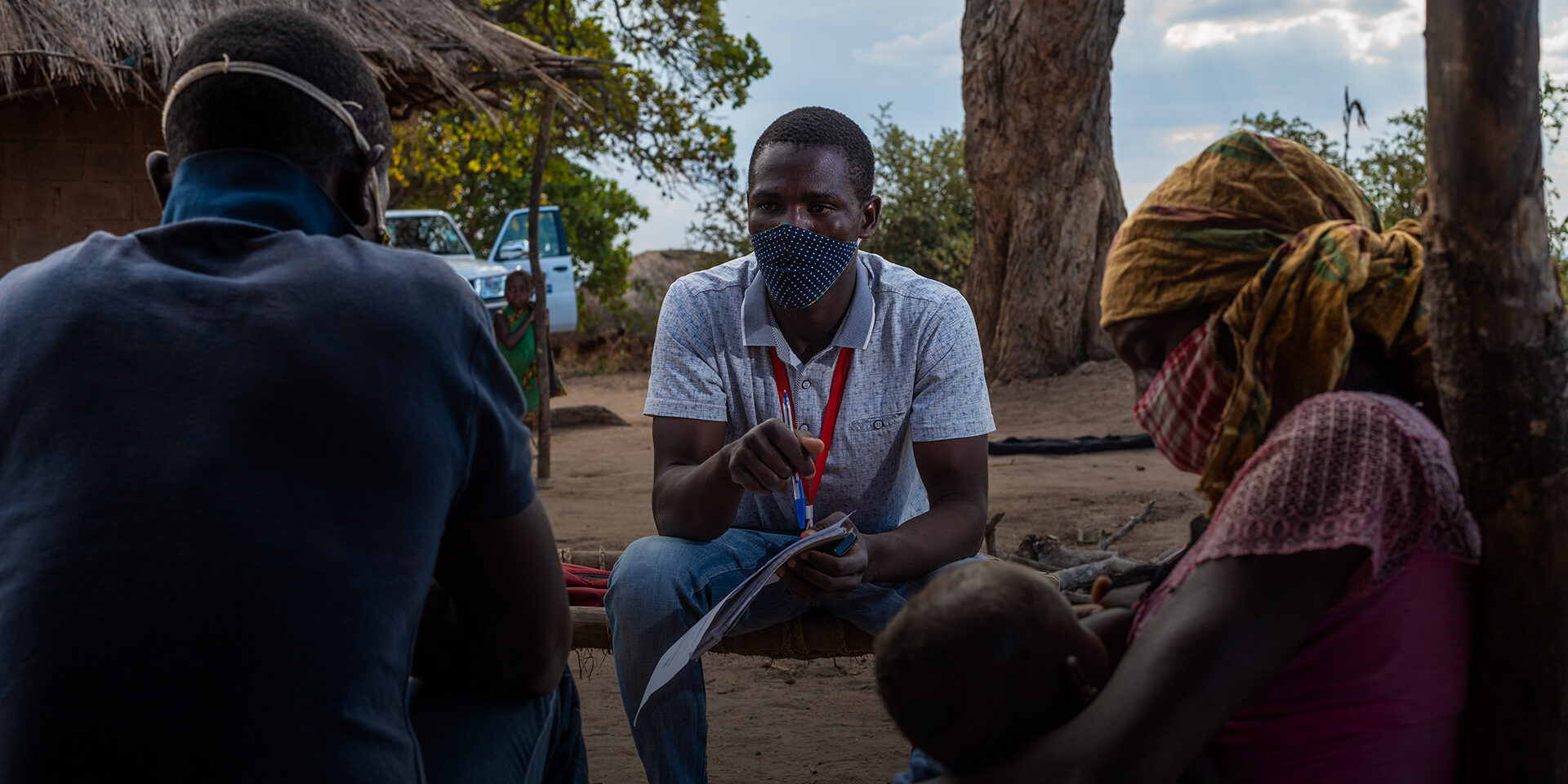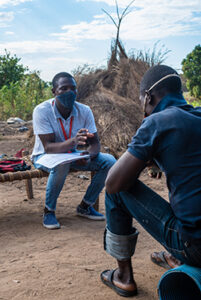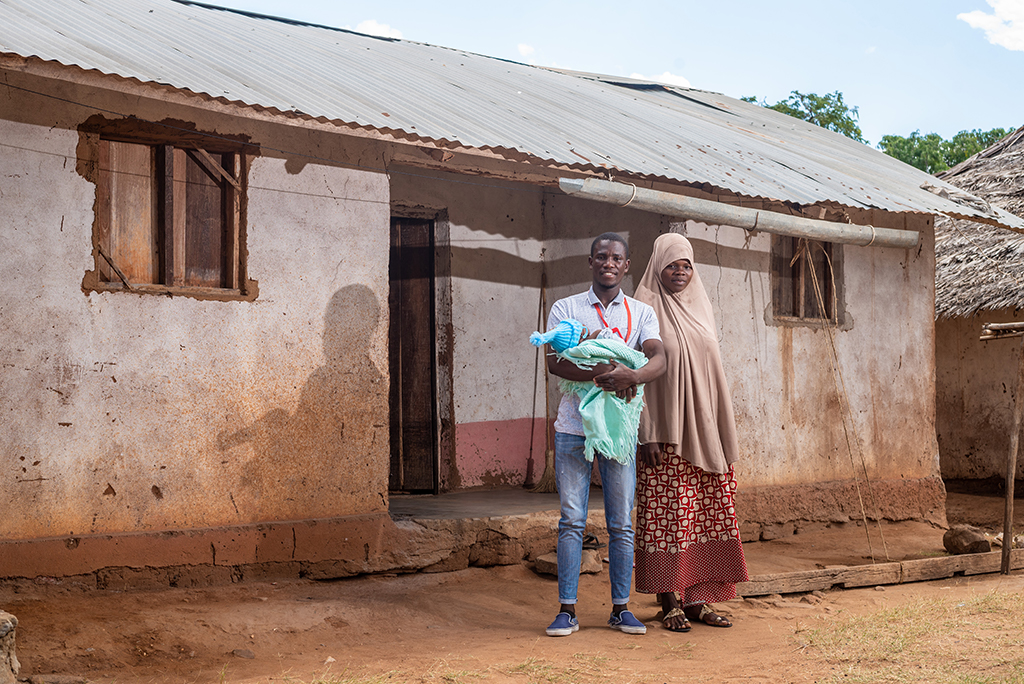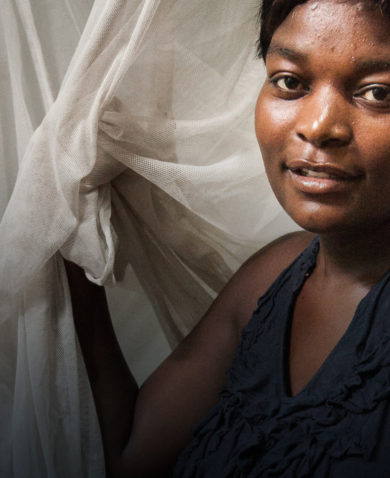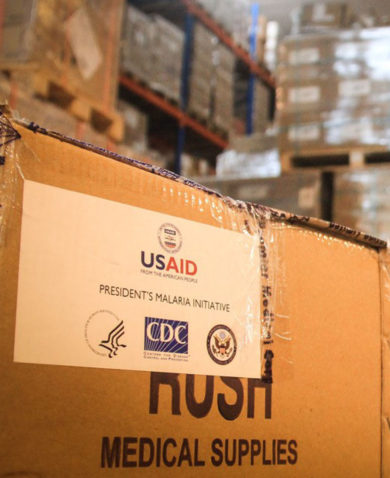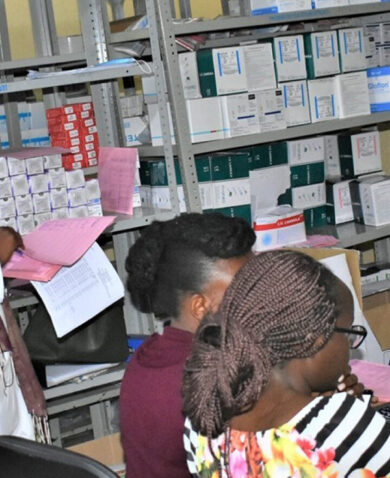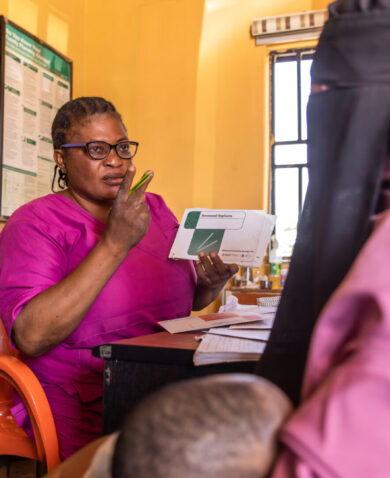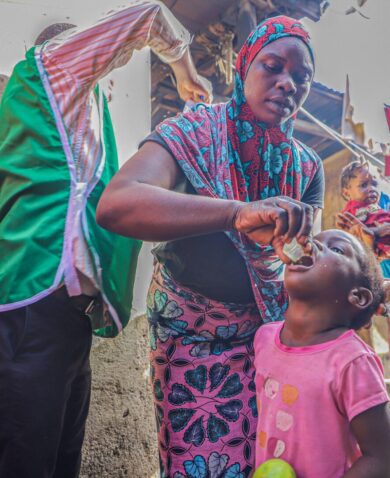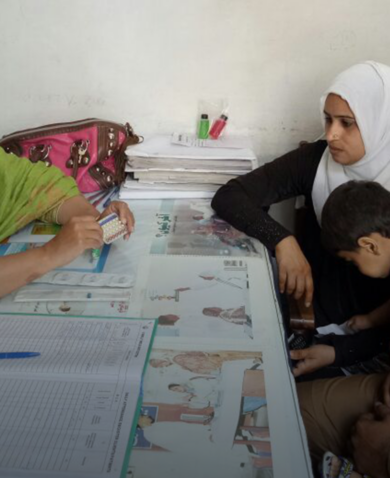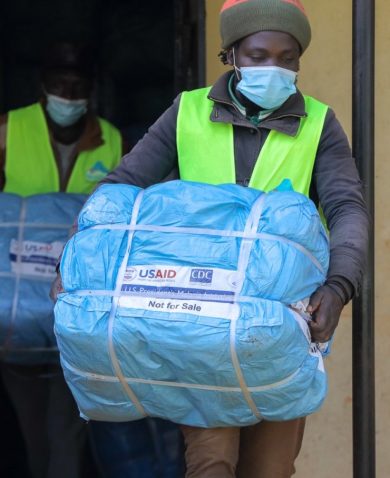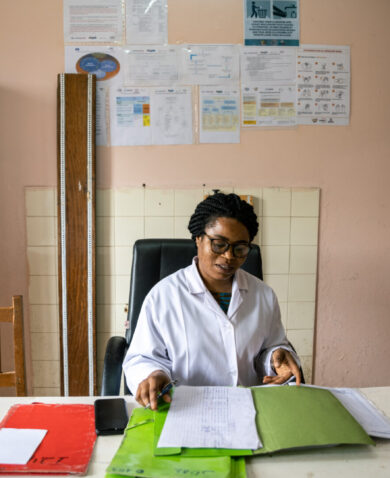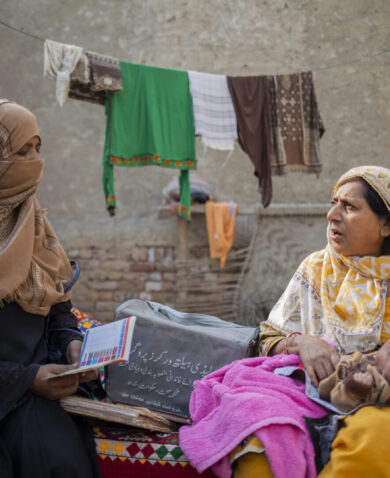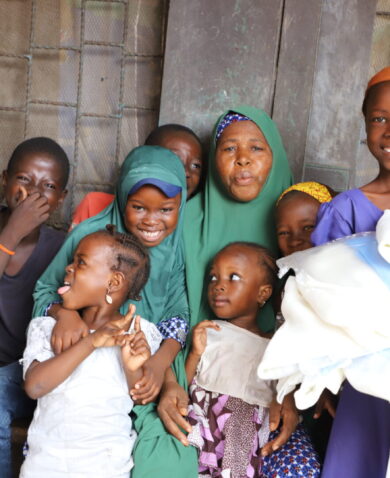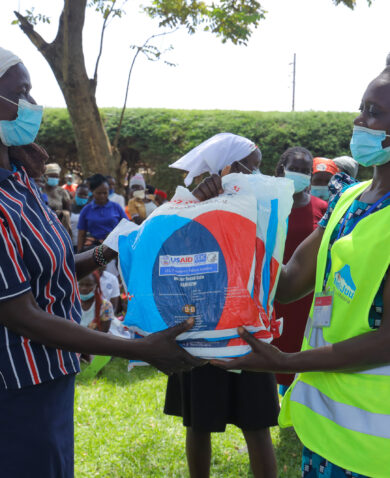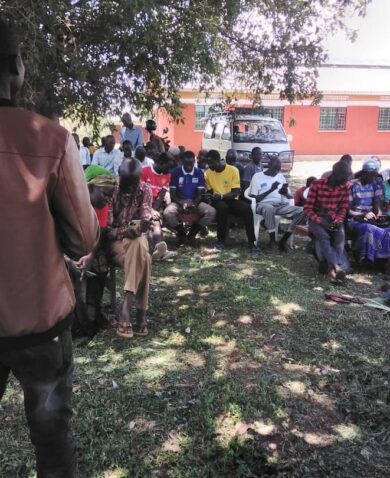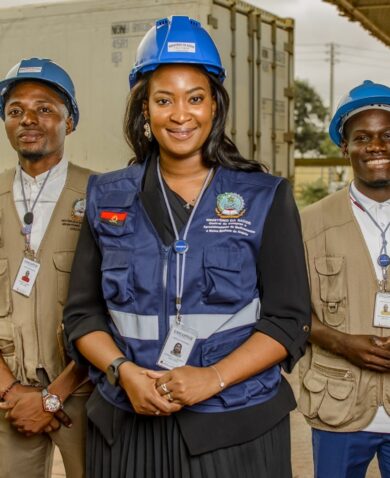Stronger Together
Even though malaria accounts for 29 percent of all deaths and 42 percent of deaths in children under five years of age in Mozambique, people often see this as a part of life and misinformation is rampant in rural communities where people mistakenly believe that mosquito nets cause rashes and allergic reactions. And even though LLINs can reduce the incidence of malaria by 56 percent, many people do not like sleeping under them because they say nets smell bad or because it gets too hot.
USAID’s Integrated Malaria Program (IMaP) is addressing this problem through awareness campaigns to promote simple steps to effectively prevent the spread of malaria, like advocating that pregnant women and children sleep under LLINs, increasing preventive treatment of malaria in pregnancy, and seeking and using appropriate treatment for malaria, especially for caregivers to children under five.
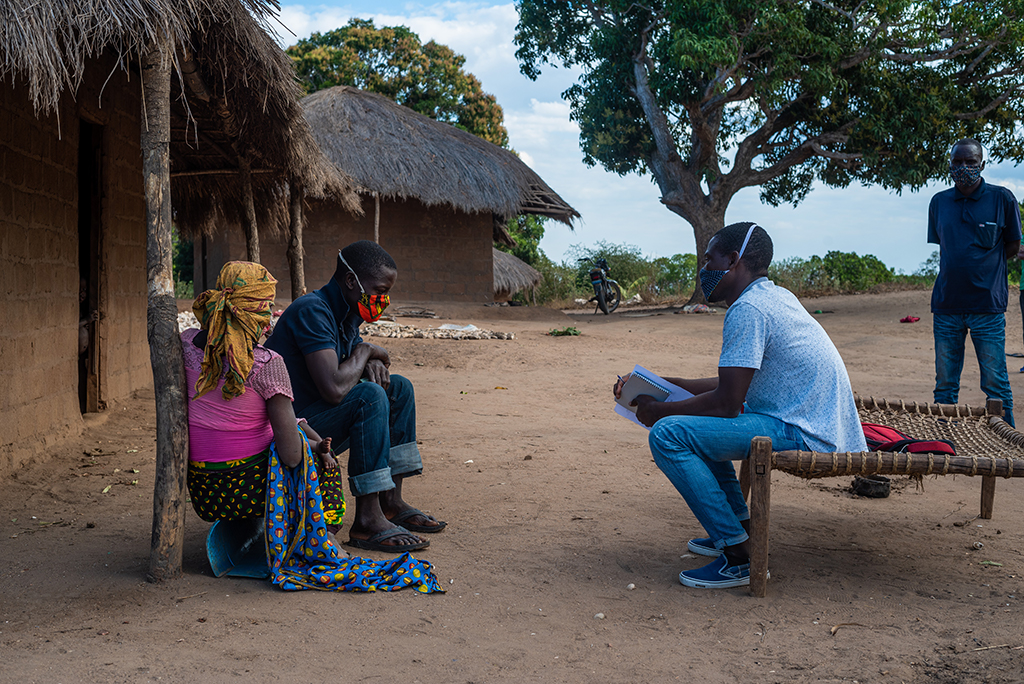
Calton is one of the 15 mobilizers and 17 community leaders trained through a grant given by the IMaP program to Nacala’s Youth Organization, a local community-based organization (CBO) working with the local hospital in Memba to reach vulnerable families. Their objective is to change social behavior by explaining the importance of prevention and treatment to families. At the community level, IMaP works in partnership with the provincial and district health authorities to distribute grants to train local CBOs, like Nacala’s Youth Organization, so that they can train others on supervising community mobilizers and teach them how to conduct home visits and discuss the importance of malaria prevention with families, facilitate community dialogues, and use monitoring and evaluation tools to measure progress against targets.
In addition to working with communities, IMaP works side by side at the national, provincial, and district levels to strengthen the government’s capacity and facilitate improvements for better decision-making, planning, and guidance. IMaP also led the creation of malaria technical working groups, which meet on a regular basis to coordinate antimalarial interventions, including social behavior change campaigns, with government partners and other international organizations working to eliminate malaria in Mozambique.
An Attainable Goal
Globally, malaria mortality rates have declined by 60 percent. In Mozambique, which has the third-highest number of malaria cases anywhere in the world, progress towards eliminating malaria is showing promise. Since 2016, the all-cause mortality rate in children under five years of age has decreased by 37 percent, and the percentage of the population that reported sleeping under a mosquito net the previous night increased from 30 percent in 2011 to 68 percent in 2018.

